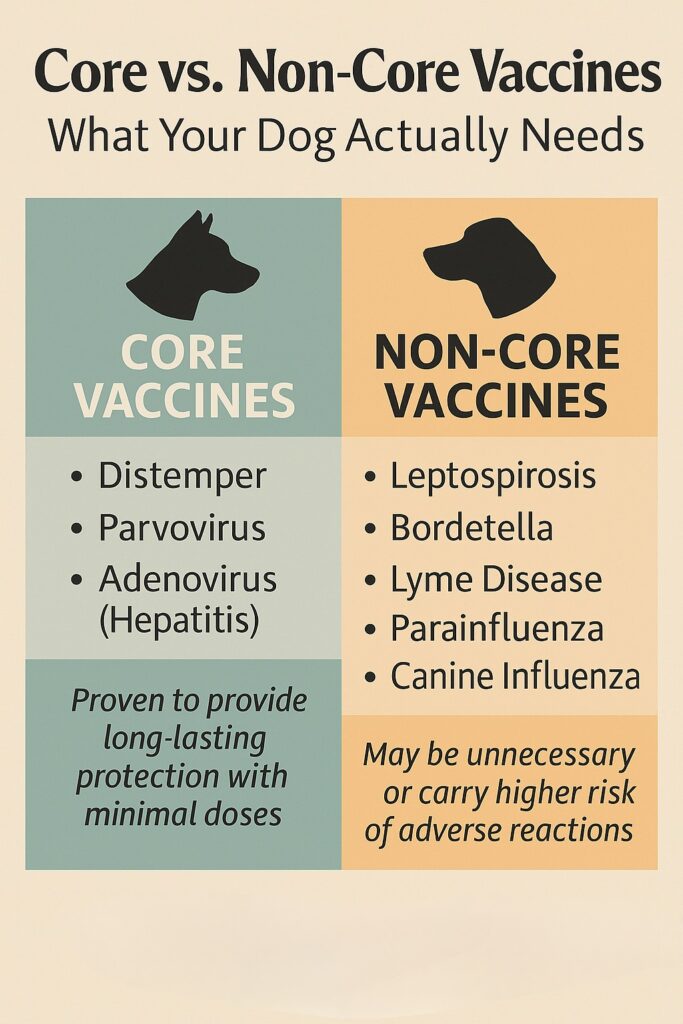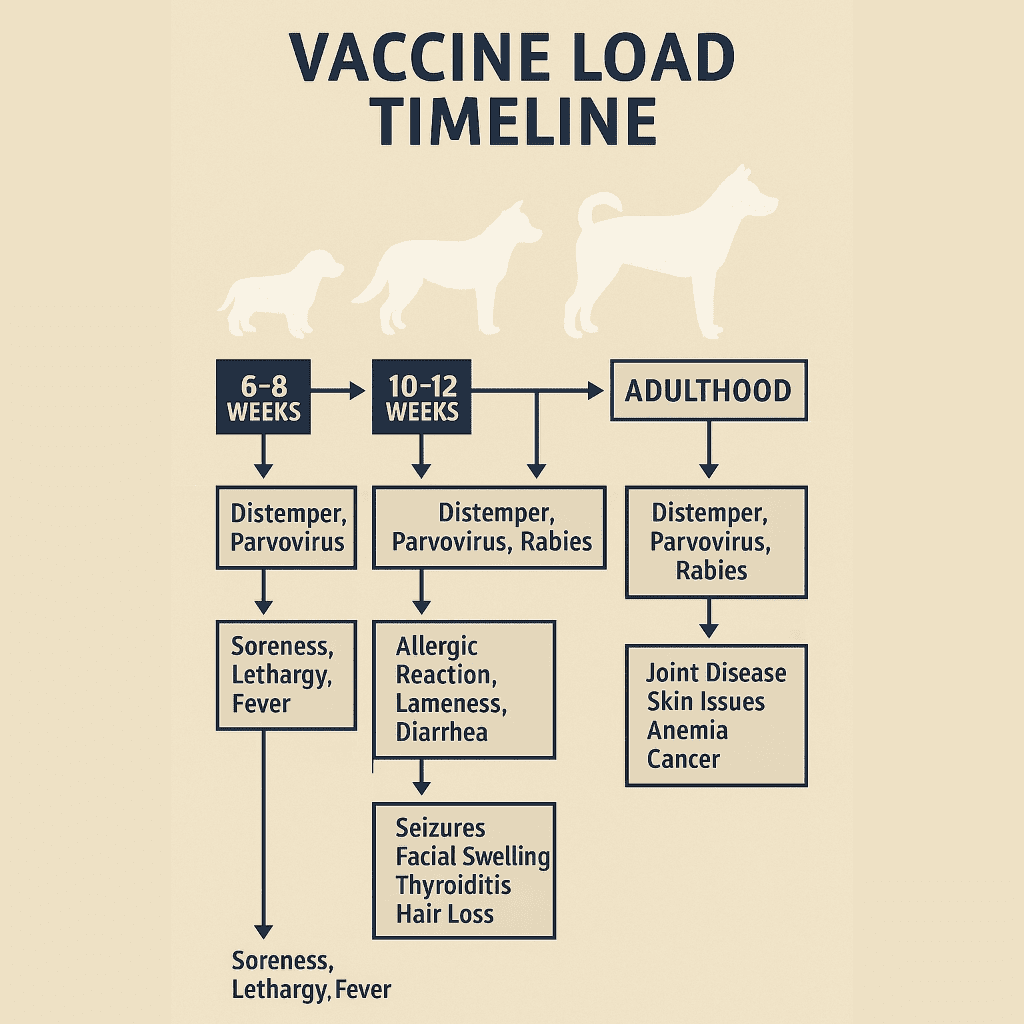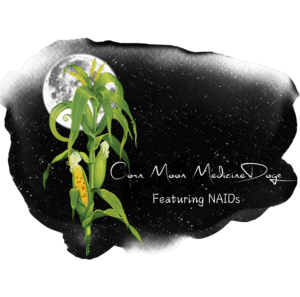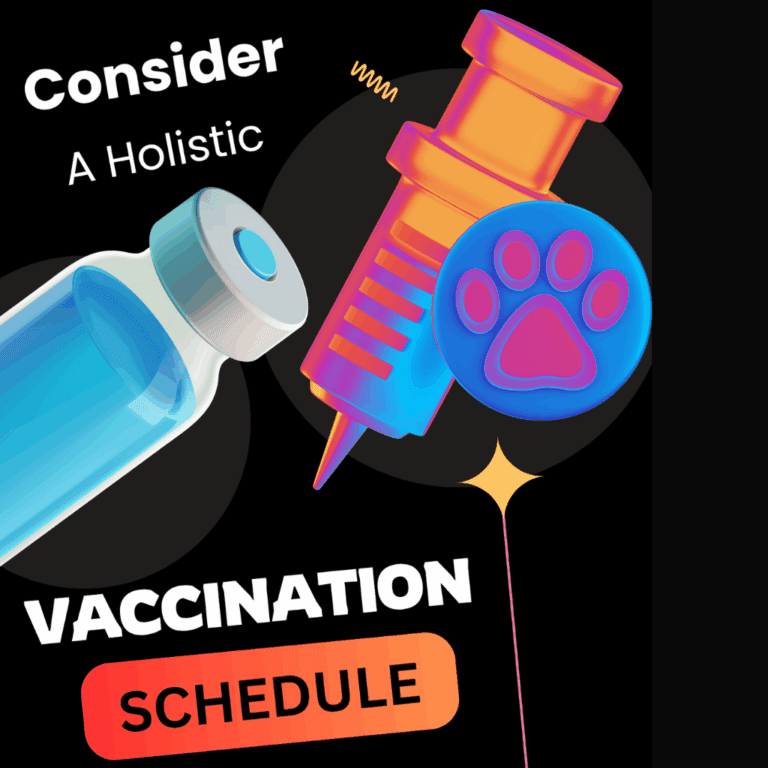The Problem with Conventional Vaccination Schedules
If you’ve owned dogs for any length of time, you’ve probably been told they need booster shots every year—or every three years—throughout their lives. But is that really necessary? And is it really safe? Modern research—and decades of real-world experience—tell a very different story. The truth is that over-vaccination is harming countless dogs, especially sensitive, slow-maturing breeds like the Native American Indian Dog (NAID). At the NAID Preservation Project (NAIDPP), we follow a science-backed, holistic approach to vaccinations that protects our puppies without burdening their developing immune systems. Let’s break down what the science says—and why we do things differently.

The Science Behind Lifetime Immunity
Veterinary immunologists like Dr. Ronald Schultz and Dr. Jean Dodds have led the charge in studying duration of immunity (DOI) for core vaccines like:
Canine Distemper Virus (CDV)
Canine Parvovirus (CPV)
Canine Adenovirus-2 (CAV-2)
Their research has consistently proven:
A single properly timed core vaccination, given at 16 weeks or older, often provides lifetime protection.
Booster vaccines given every 1–3 years do not enhance immunity—they only increase the risk of adverse events.
Most adult dogs already have sufficient antibody levels over a decade after a single vaccine series.
Vaccines for infectious diseases once administered properly are likely to protect for the life of the animal.
– Dr. Ronald Schultz, DVM, PhD
Why Delay Puppy Vaccination Until 16 Weeks?
Maternal antibodies—the immune protection puppies get from their mother—can block vaccines until they wear off naturally, typically between 14–16 weeks of age. Vaccinating before this window often does nothing but stress the immune system.
At the NAIDPP, we recommend:
Delaying core vaccinations until 16 weeks of age or older.
Using homeopathic nosodes (for Distemper and Parvo) from 8–16 weeks to provide natural immune system training during the critical exposure window.
Vaccinating once with a core vaccine (Distemper, Parvo, Adenovirus) after 16 weeks.
Titer tests instead of automatic revaccination.
This results in dogs who are protected without unnecessary immune system disruption.
Vaccines We Do Not Recommend
Leptospirosis
- Highly reactive vaccine
- Short-lived protection (6–8 months)
- Common cause of severe vaccine reactions
- Strains in vaccines rarely match field strains
Bordetella (Kennel Cough)
- Protects poorly against a mild, self-limiting disease
- Immunity lasts only a few months
- Generally unnecessary outside of crowded boarding facilities
Lyme Disease
- Extremely poor vaccine efficacy
- High rate of adverse reactions
- Most dogs exposed to Lyme naturally clear the infection without illness
Parainfluenza and Hepatitis (CAV-1)
- Rare diseases in healthy, well-cared-for dogs
- Risk of vaccine reaction outweighs benefit in most cases

The Real Risk: Cumulative Toxicity
Each vaccine contains more than just viral particles. Vaccines can also contain:
Adjuvants (aluminum salts, squalene) – stimulate inflammation, linked to autoimmune disease.
Preservatives (thimerosal/mercury, formaldehyde) – toxic even in microdoses.
Stabilizers and growth mediums (chicken embryos, fetal bovine serum, gelatin) – can trigger food allergies later in life.
Heavy metals – capable of crossing the blood-brain barrier, leading to potential neurological impacts.
The more vaccines a dog receives over its lifetime, the higher the risk of:
- Allergies
- Seizure disorders
- Autoimmune diseases
- Cancers
- Behavior changes (often neurologically driven)
Our Recommended Vaccine Approach
As long as titers show protection, no additional vaccines are needed for life.
It’s also important to understand that immunity is not a quantitative measurement; it’s qualitative. You either are immune or you’re not. Many vets don’t realize (because they don’t receive the education on this topic) that more antibodies do not equal better immunity. Instead, more antibodies simply mean a more recent infection, or sometimes, a greater inflammatory response within the body!
Final Thoughts: A Safer Way Forward
Vaccines, used wisely, save lives. But vaccines, overused and misunderstood, can also harm lives. At the NAIDPP, we believe in honoring the health of the Native American Indian Dog by following the best available science and listening to what nature teaches us. We don’t vaccinate blindly. We vaccinate intelligently. If you want a dog with a robust, resilient immune system for life—start by protecting them from unnecessary vaccines. Trust the immune system. Trust the science. Trust the dog.
🌐 Learn More!
Native American Indian Dog Preservation Project
Why titer testing is smarter than boosters
Learn more about NAID health and care
Dr. Ronald Schultz Duration of Immunity Research (General Summary)

